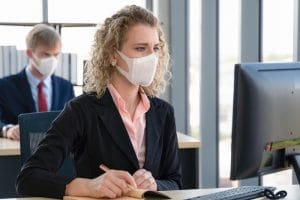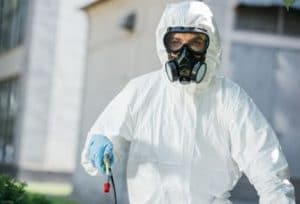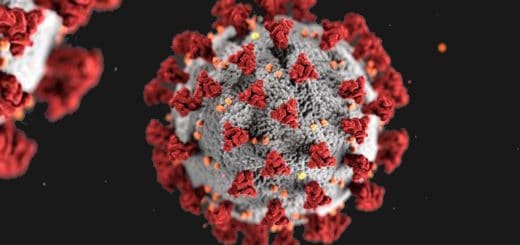How to Stay Protected from Coronavirus When Returning to Work
Amidst the Covid-19 pandemic, many non-essential businesses are starting to reopen. People are gradually starting to return to work despite the uncertainties surrounding the novel coronavirus and the resulting societal upheaval. It is critical that workers stay protected when going back to their jobs.
A Phased Approach to Reopening
Essential businesses that have sustained operations throughout the coronavirus outbreak will also start to see an increase in the number of employees who are returning to work. Governments at state levels will continue to impose restrictions to protect people from Covid-19.
Local and state governments are utilizing a phased approach to reopening. Following government orders is a first step in safely allowing employees back to work. Personnel and business owners must understand and wade through a series of government guidelines to ensure personal safety.
Continuing to Take Precautions
Certain groups of individuals are at a higher risk for developing serious complications when exposed to the coronavirus. The elderly and those with chronic underlying health conditions are the most vulnerable group. Employers should carefully consider whether these staff should be required to return to work.
Employees who do not belong to a high-risk group may still refuse to return to work due to their fears of contracting Covid-19 and the risk of transmitting the disease to members of their household. In such instances, paid or partially paid leave are options for employers.
Staying Safe If Returning to the Workplace
For those who are willing to return to work, taking several precautions will be inevitable. Ongoing care to maintain social distancing in the workplace is mandatory to reduce the spread of the coronavirus. However, such efforts require creative and strategic implementation in business establishments.
Socially Distancing
Social distancing requires that people maintain at least a six-foot distance from others. Postponing non-essential work meetings or events follows social distancing guidelines that prohibit large gatherings. In the event where meetings are necessary, consider holding them remotely, such as via phone, video or the web.
Taking the elevator at work will require new efforts to socially distance. Employers should determine how long the line of passengers should be and how many employees may enter the elevator at once. The elevator, including buttons, should be frequently disinfected to limit the spread of infectionInfection is the invasion and multiplication of harmful micr... More. Depending on the floor your office is on, this might also be a good reason to begin taking the stairs.
Restrict access to communal spaces in the workplace, such as break rooms, large conference rooms, and the cafeteria, to enforce social distancing. Alternative options should be provided to staff to ensure they have a sanitary space to take an uninterrupted break or eat lunch.
In businesses that cater to the public, it is important to place one-way signs along aisles, such as those in grocery stores. One-way corridors or zones help people maintain social distancing. This in turn helps reduce their risk of contracting the coronavirus from asymptomatic customers in the store or office.
 Wear Face Masks
Wear Face Masks
Encourage all employees to wear a face covering. Cloth face masks help prevent colleagues from spreading respiratory droplets that may be contaminated with the coronavirus by acting as a “splash guard”. Covid-19 is transmitted through respiratory droplets emitted from coughing, sneezing, and talking. And though a cloth mask will not protect the wearer from transmitting the disease, it will help prevent others from possibly catching it from you.
Wash Hands
Frequent handwashing with soap and water for at least 20 seconds is highly advised for all employees. Hand sanitizer containing 60 percent alcohol may be substituted if soap and water are unavailable. Wash hands before eating, after coughing, upon touching face masks, and before and after shifts.
Disinfect Workspaces
 Staying safe during the Covid-19 outbreak requires frequently disinfecting high touch spots. Desks, keyboards, phones, light switches, and doorknobs should be wiped down with an EPA-approved disinfectantA disinfectant is a chemical substance used to kill or inact... More. Staff should avoid using other workers’ office equipment, like pens. Professional cleanings effectively disable the virus.
Staying safe during the Covid-19 outbreak requires frequently disinfecting high touch spots. Desks, keyboards, phones, light switches, and doorknobs should be wiped down with an EPA-approved disinfectantA disinfectant is a chemical substance used to kill or inact... More. Staff should avoid using other workers’ office equipment, like pens. Professional cleanings effectively disable the virus.
Stagger Shifts
Employers, especially larger ones, might consider staggering shifts and allow employees to work three to four days a week. Alternately, to limit the number of staff onsite and manage workplace occupancy levels, teams of employees may work on alternating days or weeks.
Install Sneeze Guards
While at work, employees should promote their health and safety by maintaining physical distance from other staff members and customers. Commercial sneeze guards are available for both desks and counters, safeguarding employees from respiratory droplets from the public and fellow workers.
Acrylic sneeze guards protect workers in a variety of businesses, such as banks, grocery stores, reception desks, and take-out pick-up locales. Vertical sneeze guards are effective against the spread of germs. The shields are also portable, allowing for added versatility in the workspace.
If You’re Are Sick, Stay Home
 Employees who are sick with the coronavirus should notify their supervisor and remain at home in self-isolation. Symptoms of the coronavirus may be mild and include fever, cough and shortness of breath, or severe, such as bluish lips, sudden confusion, or persistent chest pain or pressure.
Employees who are sick with the coronavirus should notify their supervisor and remain at home in self-isolation. Symptoms of the coronavirus may be mild and include fever, cough and shortness of breath, or severe, such as bluish lips, sudden confusion, or persistent chest pain or pressure.
The Centers for Disease Control (CDC) recommends steps for employees who are sick with Covid-19. The CDCs criteria for home isolation should be met prior to returning to work. Furthermore, sick employees should consult with a healthcare practitioner before resuming their shifts.
Perform Virtual Health Checks
In accordance with state and local public health guidelines, employers are encouraged and permitted to conduct temperature screenings prior to each staff member entering a work facility. Screeners should wear appropriate personal protective equipment (PPE)Personal protection equipment (PPE) is safety gear such as g... More when performing in-person health checks.
 Hire a Coronavirus cleaning and disinfection service
Hire a Coronavirus cleaning and disinfection service
An effective way to protect employees from Covid-19 is to professionally clean and disinfect the workplace before staff return, and subsequently on a regular basis.
Professional technicians are experienced and trained to eliminate bacteria, moldMold is a type of fungus that grows in damp or humid conditi... More, and virusesViruses are microscopic infectious agents that can only repr... More, like SARS-CoV-2, which causes Covid-19. Coronavirus cleaning and disinfecting services promote a healthy work environment, so your employees can return to work with confidence.













